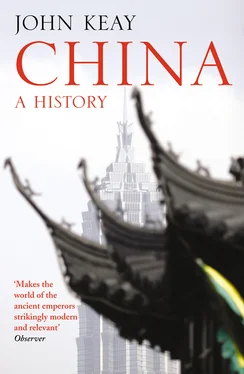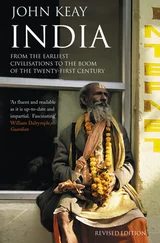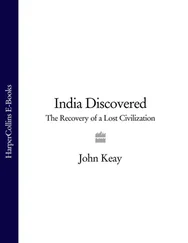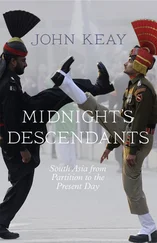These events were accompanied by a reign of terror that, as described by Sima Qian, must have made the dead emperor’s heavy-handed administration seem almost benign. ‘Make the laws sterner and the penalties more severe,’ urged Zhao Gao. ‘See that those charged with a crime implicate others and that punishments extend to the families of the criminals. Wipe out the chief ministers and sow dissension among their kin.’ With the scheming eunuch acting as grand inquisitor, twelve princes and ten princesses were dismembered in the Xianyang marketplace. Those implicated with them together with their ‘three degrees of relatives’ – traditionally parents, siblings and offspring – suffered a similar fate but were ‘too numerous even to be counted’. New laws and harsher punishments were promulgated. Taxes and levies were increased, and yet more forced labour was marched off to work and die on still-incomplete projects such as the Opang Palace and the northern frontier’s walls. ‘Each man began to fear for his own safety,’ says Sima Qian, ‘and those who longed to revolt were many.’ 3
Rebellion in fact broke out within six months of the First Emperor’s death. It had already spread through the eastern commanderies when in the following year (209 BC) Li Si became the next victim of note. Shunned by the witless new emperor, ‘China’s First Unifier’ was duped by Zhao Gao, tortured until he confessed to treason, and then condemned to undergo ‘the five penalties’. These consisted of tattooing, amputation of ears, nose, fingers and feet, flogging, beheading and public exposure of the severed head. For good measure, Li Si’s torso was also cut in two at the waist. Few destroyers of books can themselves have been so comprehensively shredded. 4
Meanwhile Zhao Gao had begun gunning for his imperial puppet. In anticipation of the fable about ‘The Emperor’s New Clothes’, His Majesty was invited to accept the gift of a horse that was in fact a deer. When he made some remark to that effect, Zhao Gao and other attendants corrected him: all agreed it was a horse, and they further pretended concern that His Majesty might be labouring under a delusionary condition. The Grand Diviner then confirmed that there had of late been some liturgical shortcomings in the imperial performance of the ancestral rites. The Second Emperor was advised to withdraw from public life to fast and purify himself.
While thus secluded, a hostile force invaded his place of retreat. Zhao Gao declared it to be the advance guard of a rebel army (it was of course nothing of the sort, just his own carefully drilled cohorts) and advised the young emperor to pre-empt capture and execution by taking poison. After further prompting and not a little threatening, the emperor obliged. Zhao Gao himself then seized the imperial seals.
This, however, was too much for the other officials and much too much for Heaven, which made its feelings felt with three hefty earth tremors. Zhao Gao therefore turned to a grandson of the First Emperor, who, though reluctant to accept the throne, did the next best thing: he had Zhao Gao murdered. By now it was 207 BC, only three years since the First Emperor’s death but long enough for his entire empire to be up in arms. As an inheritance it was not worth the risk of acceptance; in fact the grandson may already have been in touch with the rebels. Within three months they would be entering Xianyang itself. 5
‘Rebellion’ would seem a misnomer for the groundswell of protest that greeted the Second Emperor’s excesses. There was an element of restoration about the uprising, of reinstating the old ‘warring states’, plus a strong sense of righteous obligation in overthrowing an imperial house that had so patently forfeited Heaven’s favour. To be fair, it is doubtful whether Qin ever really laid claim to such a thing. The First Emperor’s inscriptions scarcely mention Heaven, let alone the Mandate; and if they were drafted by such a rabid legalist as Li Si, this is hardly surprising. But in Confucian terms, legitimacy now lay firmly with the anti-Qin forces and would continue to do so throughout the next seven years of civil war.
Sima Qian deals with this confused period exhaustively, recounting the marches and counter-marches, the engagements and intrigues in remorseless detail, but always from the perspective of the contending ‘rebel’ camps, not of the blood-spattered Qin court at Xianyang. Larger-than-life personalities emerge from the mêlée and hint at major issues. What might otherwise have seemed like a brief and belated throwback to the ‘Warring States’ period is portrayed as a seminal moment, a historical watershed and a Grand Historian’s grand opportunity. China’s political future was being decided and its official ideology forged. The Han empire that resulted would enshrine features of Chinese culture that would be revered ever after and lend compelling substance to the idea of a continuous civilisation.
Of all the issues involved in the power struggle – territorial, dynastic, philosophical and fiscal – perhaps the most surprising was social, in that dissent swelled from the lowest ranks of society. Resistance to Qin rule proved to be not just popular but populist. In his determination to mobilise the manpower of the empire, the First Emperor had established a direct relationship between the centralised government and the localised governed. Wrenched from mass oblivion, the black-haired commoners had been dragooned into participating in the historical process. Millions had been uprooted to fight, labour or colonise on the empire’s behalf. Millions more had been obliged to support this effort through heavy taxation and collective liability backed by ferocious penalties. Their woes were shared and their fears real. While nationalists would later applaud the First Emperor’s efforts at unification, and while Maoists would approve his autocratic efforts in mass mobilisation, orthodox Marxists would be more gratified by the anti-Qin response and its early evidence of peasant revolt and class consciousness.
The first challenge came from a ploughman of the erstwhile state of Chu, who was called Chen She. Ordered to the frontier with a gang of conscripts in 209 BC, Chen She calculated that the heavy rain was making it impossible for them to reach their destination on schedule and that since they would therefore be treated as deserters, they might as well as desert. A colleague agreed and, by dint of some supernatural trickery, convinced the other conscripts to join them. The cry of ‘Great Chu shall rise again’ was first heard coming from a spookily lit shrine at dead of night; it was followed by the refrain ‘Chen She shall be a king’, the very words that one of the conscripts had just found written in imperial cinnabar on a piece of silk miraculously preserved inside the belly of his fish supper. As portents went, these were both explicit and imperative. The conscript gang was transformed into a band of rebels, quickly snowballed into an avenging army, and then, as others followed Chen She’s example, became the vanguard of a great anti-Qin coalition. Chen She resurrected the ancient state of Chu and declared himself its king. Other pretenders followed suit north of the Yellow River in erstwhile Yan, Zhao and Wei. 6
Sima Qian would dub Chen She ‘the Melancholy King’. Accustomed to history’s neglect of the common man, the Grand Historian was intrigued how someone ‘born in a humble hut with tiny windows and a wattle door, a day labourer in the fields and a garrison conscript, whose abilities could not match even the average’, could yet ‘step from the ranks of the common soldiery, rise from the paths of the fields and lead a band of a few hundred poor and weary soldiers in revolt against…a great kingdom that for a hundred years [i.e. since Qin’s acquisition of Sichuan] had made the ancient eight provinces pay homage at its court.’ The only explanation had to be that offered by Confucians: Qin had failed to rule with righteousness and humanity and had failed to realise that the qualities required of a ruler were not those of a conqueror. Thus Chen She had only to ride a wave of righteous protest. But when he too proved a neglectful ruler, he was himself engulfed by this wave, in fact murdered within the year by one of his own retainers. Melancholy indeed, mused the Grand Historian. 7
Читать дальше












